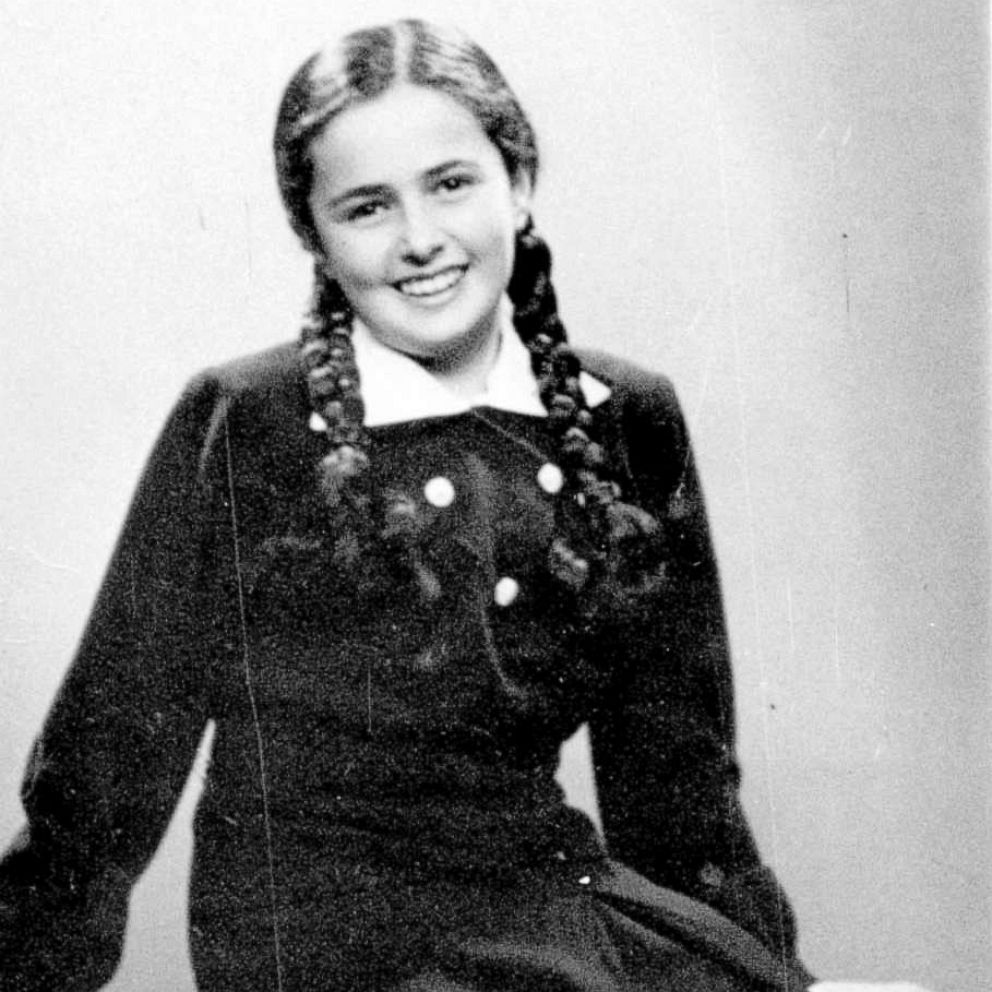What if you could Instagram the Holocaust? A question sparks controversy
JERUSALEM -- It’s a provocative question plastered on billboards across Israel: What if a girl during the Holocaust had Instagram?
The billboard beckons young people to imagine someone their own age posting thoughts, selfies and videos during that tragic chapter of history –- that is, if social media existed during World War II.
On Wednesday, it will look like it did exist on the Instagram page of Eva.stories. It’s a creative, ambitious and controversial Israeli media project to raise Holocaust awareness. The promo for the page, which has won more than 360,000 followers, teases a unique “selfie” style narrative of the Holocaust.
With a cell-phone in hand, an actress plays the real life character of Eva Heyman, a 13 year-old Jewish girl from Nagyvárad, Hungary. Her life in 1944 unfolds across dozens of selfie posts, pictures and videos -- from her innocent tween take on family and friends, to her passionate need to document her family’s brutal persecution by the Nazis. The events, words, and characters are based on the short diary Heyman began writing on February 13, 1944. Her last entry was on May 30th. Three days later, she was deported to Auschwitz where she was murdered.
The Instagram Eva.stories project is the brainchild of Israeli high-tech entrepreneur Mati Kochavi. He funded it, wrote the script and directed Heyman’s story on an elaborate set in Lvov, Ukraine. His aim: to expose young people in Israel and abroad to the Holocaust on their media turf.
“In the digital era when the attention threshold drops and the excitement threshold rises, and against the background of the ever-diminishing number of survivors, there’s a tremendous need to find new models of testimony and memory,” he said in an official press release.
His daughter Maya, who partnered on the campaign, said she hoped it would, “illustrate the horrors of the Holocaust in a way that evokes identification and deep understanding.”
Kochavi has won praise for Eva.stories ahead of its Wednesday launch, the day Israel marks Holocaust Memorial Day. Israeli Prime Minister Benjamin Netanyahu tweeted his support, saying "exposes the immense tragedy of our people through the story of one girl."
But Kochavi’s efforts are also drawing anger and criticism. In a column for Israel’s popular daily, Haaretz, a musician called the fictitious Instagram account, “a display of bad taste,” and complained it was being promoted “crudely” and suggested it could lead to inappropriate “selfies” at the gates of Auschwitz-Birkenau. Others charge it may dumb down or simplify the complexities of the Holocaust or offend survivors.
Israel’s National Holocaust Museum, Yad VaShem, said it was not taking sides in the debate over the project. But in a statement, the institution expressed support for the use of social media platforms to commemorate the Holocaust, calling doing so both "legitimate and effective." The leading research institute on Holocaust education added that it uses social media channels, including Instagram, to reach the public, posting authentic Holocaust materials that are relevant and respectful to the topic.
In the digital era when the attention threshold drops and the excitement threshold rises, and against the background of the ever-diminishing number of survivors, there’s a tremendous need to find new models of testimony and memory.
Dr. Tobias Ebbrecht-Hartmann, a lecturer at the Hebrew University’s department of Communication and Journalism told ABC News that it’s too early to judge the Eva.stories project. On the one hand, he believes it already has achieved one success.
“It’s revived the discussion. It has a lot of people here in Israel and abroad talking about Holocaust education,” he said.
But he’s worried about whether the project will have a lasting impact.
“We need young people to be engaged in Holocaust education," he said. "Will this project be a mere media-event, something for entertainment or will it provide us with a new educational tool that encourages interaction?”




